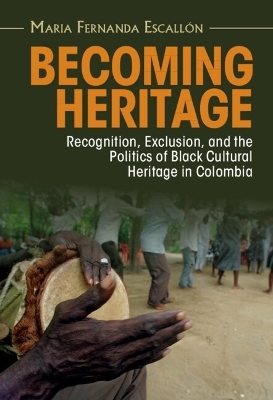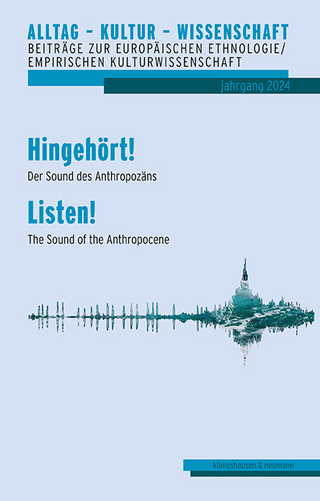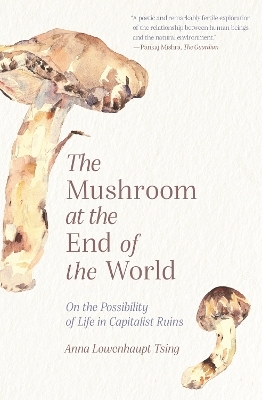
Becoming Heritage
Recognition, Exclusion, and the Politics of Black Cultural Heritage in Colombia
Seiten
2023
Cambridge University Press (Verlag)
978-1-009-18037-5 (ISBN)
Cambridge University Press (Verlag)
978-1-009-18037-5 (ISBN)
Becoming Heritage examines how ostensibly inclusive heritage policies created exclusion and conflict among groups within the Afro-descendant Palenquero community in Colombia. Bringing together broader discussions on race, nation and inclusion, this book is for students and scholars interested in heritage, ethnicity and politics in Latin America.
Since the late twentieth century, multicultural reforms to benefit minorities have swept through Latin America, however, in Colombia ethno-racial inequality remains rife. Becoming Heritage evaluates how heritage policies affected the Afro-Colombian community of San Basilio de Palenque after it was proclaimed by UNESCO as Intangible Cultural Heritage of Humanity in 2005. Although the designation partially delivered on its promise of multicultural inclusion, it also created ethno-racial exclusion and conflict among groups within the Palenquero community. The new forms of power, knowledge, skills and values created to safeguard heritage exacerbated political, social, symbolic and economic inequalities among Palenqueros, and did little to ameliorate the harsh realities of living and dying in Palenque. Bringing together broader discussions on race, nation and inclusion in Colombia, Becoming Heritage reveals that inequality in Palenque is not only a result of Black Colombians' uneven access to resources; it is enforced through heritage politics, expertise and governance.
Since the late twentieth century, multicultural reforms to benefit minorities have swept through Latin America, however, in Colombia ethno-racial inequality remains rife. Becoming Heritage evaluates how heritage policies affected the Afro-Colombian community of San Basilio de Palenque after it was proclaimed by UNESCO as Intangible Cultural Heritage of Humanity in 2005. Although the designation partially delivered on its promise of multicultural inclusion, it also created ethno-racial exclusion and conflict among groups within the Palenquero community. The new forms of power, knowledge, skills and values created to safeguard heritage exacerbated political, social, symbolic and economic inequalities among Palenqueros, and did little to ameliorate the harsh realities of living and dying in Palenque. Bringing together broader discussions on race, nation and inclusion in Colombia, Becoming Heritage reveals that inequality in Palenque is not only a result of Black Colombians' uneven access to resources; it is enforced through heritage politics, expertise and governance.
Maria Fernanda Escallón is Assistant Professor in the Department of Anthropology at the University of Oregon. Her work has received support from the National Endowment for the Humanities, the Fulbright Program and the Mellon Foundation. Before pursuing doctoral studies, she worked in sustainable development and heritage policy-making in Colombia.
Preface; Introduction; 1. A new framework of legitimacy; 2. Institutionalizing heritage: bureaucracy, meritocracy, and expertise; 3. Heritage in the face of death; 4. Palenqueras and the trap of visibility; Epilogue; References.
| Erscheinungsdatum | 03.04.2023 |
|---|---|
| Reihe/Serie | Afro-Latin America |
| Zusatzinfo | Worked examples or Exercises |
| Verlagsort | Cambridge |
| Sprache | englisch |
| Maße | 158 x 235 mm |
| Gewicht | 540 g |
| Themenwelt | Sozialwissenschaften ► Ethnologie |
| Sozialwissenschaften ► Soziologie | |
| ISBN-10 | 1-009-18037-1 / 1009180371 |
| ISBN-13 | 978-1-009-18037-5 / 9781009180375 |
| Zustand | Neuware |
| Haben Sie eine Frage zum Produkt? |
Mehr entdecken
aus dem Bereich
aus dem Bereich
Wert, Tausch und menschliches Handeln
Buch | Softcover (2023)
diaphanes (Verlag)
CHF 39,20
Buch | Softcover (2024)
Königshausen u. Neumann (Verlag)
CHF 39,20
On the Possibility of Life in Capitalist Ruins
Buch | Softcover (2021)
Princeton University Press (Verlag)
CHF 27,90


